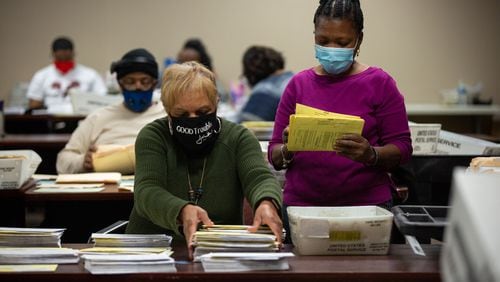The state is hoping to save more than $200 million to stave off future shortfalls in the massive State Health Benefit Plan through a series of cost-cutting moves.
Among them: an audit of eligibility to make sure all of the 295,000 dependents of teachers and state employees and retirees currently on the plan should be getting state-subsidized health coverage.
Department of Community Health Commissioner Clyde Reese said his department was also auditing the plan’s pharmacy benefits manager to make sure the state is paying the right amount for drugs, is hoping to add more competition to lower costs in supplemental insurance for retirees, and will run a pilot program to put work-site health clinics at state facilities and possibly in school districts.
The plan, first reported by the online site Georgia Health News, aims to save money to help avert shortfalls in the $3.1 billion program that covers 650,000 teachers, state employees, retirees and their dependents.
The DCH has projected a $55 million deficit in fiscal 2018, which begins July 1, 2017. Much larger shortfalls were predicted last year by the DCH, but health care expenses have not risen as much as expected.
In fact, premiums for teachers, employees and retirees may not increase and may actually fall for some next year, Reese told The Atlanta Journal-Constitution on Wednesday.
"We are going to try to hold (rates) steady, as we did in 2016," he said.
The department did a similar eligibility audit a little more than a decade ago that resulted in the suspension or termination of benefits for 30,000 dependents, saving the state more than $30 million a year.
“Whether it will be higher or lower (this time), we don’t know,” Reese said, “but it was one of the things we determined we needed to do again.”
He said those enrolling in the plan file electronically. “Unless you actually ask for copies of birth certificates, things like that, things fall through the cracks,” Reese added. “In the open enrollment process, there is not a manual review of documents.”
Reese said the department’s goal is to have the audit done before the October sign-up period for 2017 so ineligible dependents aren’t kept on the plan for another year.
John Palmer, a Cobb County school band director and spokesman for the teacher, employee and retiree activist group TRAGIC, said members of the organization “fully support the DCH conducting the eligibility audit and hope the audit helps save the state and the SHBP much-needed funds.”
He was also pleased to hear the news about premiums for next year.
“After decades of premium hikes, combined with pay freezes and furloughs, members will be relieved to know premiums will not rise in 2017, and that they will continue to have options in their insurance plans,” Palmer said.
But he added that there remains concern among plan members that out-of-pocket expenses continue to rise.
And he said, “While premiums may not be rising for teachers and state employees, the state has shifted the full cost of health insurance for noncertified employees to the local school districts.”
The DCH and lawmakers say teachers, state employees and retirees on the plan have long subsidized coverage for such staffers.
But teachers say insurance for such workers is vital to help keep low-paid but important employees on the job. And they say the increased costs have proved to be a hardship for some school districts at a time when Gov. Nathan Deal and the General Assembly have publicly touted increased funding for public schools.







